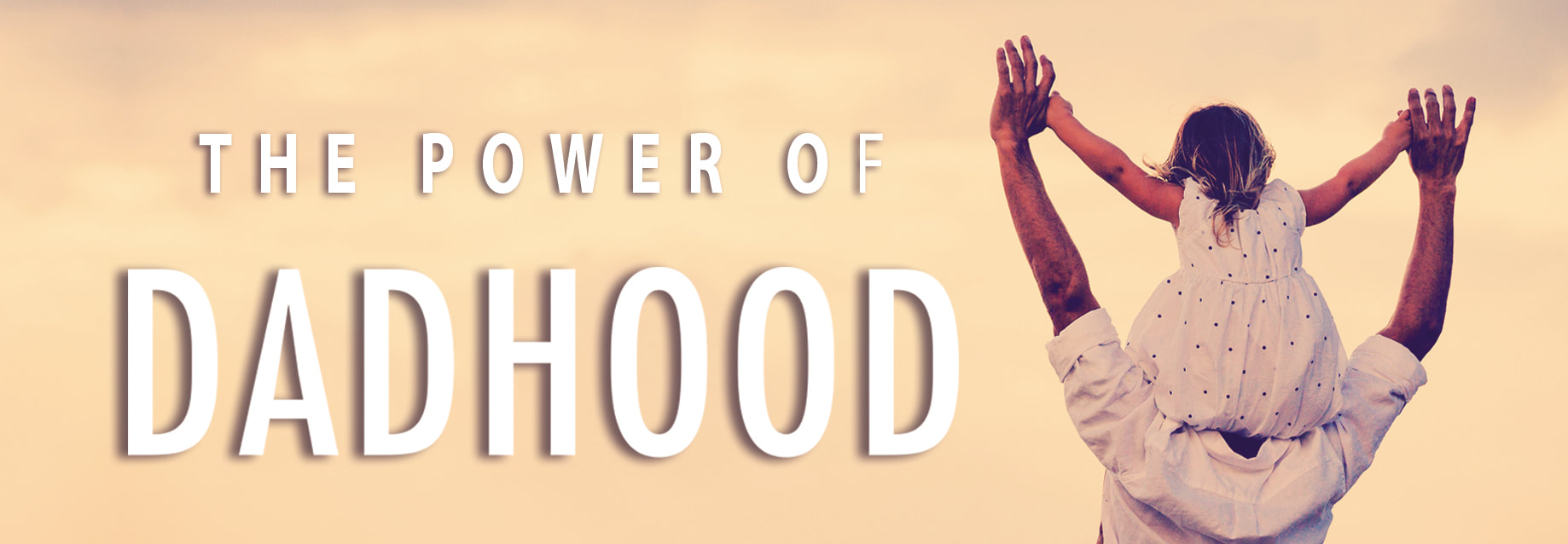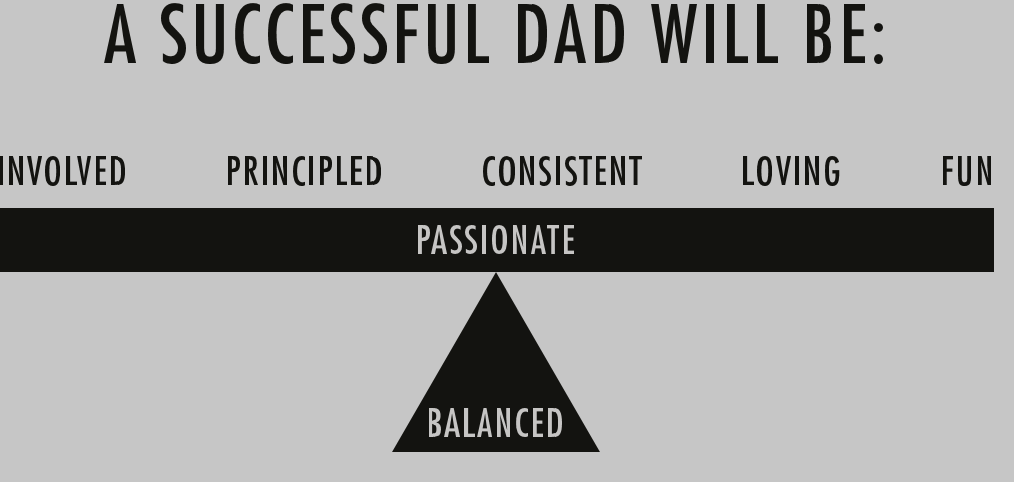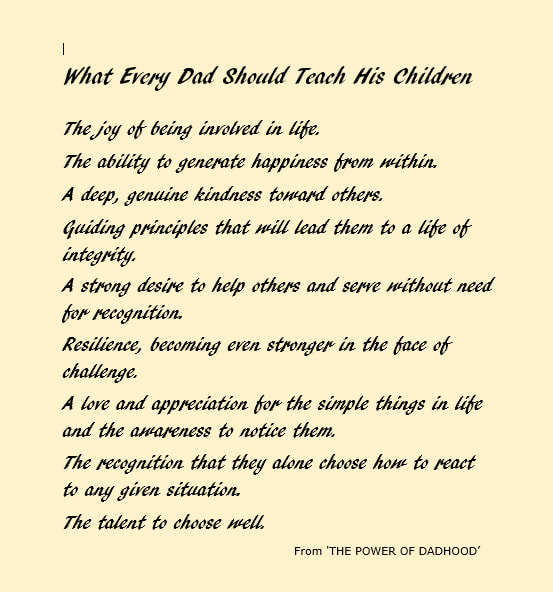
This week is the third of four weeks, leading up to ‘Father’s Day’. In this excerpt from my mentoring book, “The Power of Dadhood”, is an appendix that summarizes the qualities of a good dad. We can’t be perfect, but we can walk and talk towards that goal. That alone should be enough to raise healthy children, both physically and mentally.
Men who become fathers bring on a significant but satisfying responsibility into their lives. That is true for all. What is different among men is their background, temperament, health, their relationship with the mother, the relationship these men had with their parents, their occupations, the personalities of their children, and so much more. These variations bring on countless combinations of issues and challenges. What father among us has all the answers? Certainly not me, but I do discuss those challenges in a way to allow each father to find a better answer for himself and his family.
This book is easy to read, has simple but effective advice, and talks down to no one. I know it will help your family!
As we have all witnessed, being a successful father is not an easy task! It’s complicated because you’ll find yourself asking, “What are the answers?” when the answers are unique to every dad and every child. Instead of answers, you can best rely on developing proven characteristics that, in one form or another, we have discussed in this book.
Although there are many, below are the characteristics I believe are the most important in being the best dad you can be. But none of these characteristics alone are sufficient, and sometimes not even beneficial, if not balanced with other important characteristics.
Be Involved. Be involved from the moment of your children’s births. You are a parent, not a figurehead. Be there for important events. Be available when they need support. Be strong for them when they are afraid. Be careful to consider your children when you prioritize your life events. Be a listener!
Be Principled. You are being watched by your children. They assume you are the model they should follow. You must have personal values that will guide them in the right direction. Be honest. Be moral. Be sure you have rules and limits.
Be Consistent. Be reliable. Be a rock. Do what you say and say what you’ll do. When you set goals and limits for your children, there should be rewards and consequences reinforcing them, as appropriate. If you’re not consistent with your children, you will confuse them. Explain the reasons and situations that may require you to relax or tighten the rules. This keeps your children involved and informed, and avoids misunderstandings.
Be Loving. Be gentle. Be kind. Be understanding. Be protective. Give hugs and pats on the back. Give them your complete attention on occasion—especially when they need it. Sympathize when appropriate but show your concerns about improper behavior. That is also love.
Be Fun. Be a jokester, but don’t force it. Surprise your children with occasional treats and adventures. Smile. Do crazy things—like balancing a broom on your nose. Play catch. Pretend with them. Have a tea party. Tease them in a kind, not demeaning, way. Know and be kind to their friends.
Be Balanced. The glue that makes all the other “be”s work is to be balanced. Be involved but not too involved. Be principled but don’t be preachy. Be consistent but not inflexible. Be loving, but don’t be a pushover. Be fun but be respected. Know your own limits. You cannot be consistent if you don’t have principles. You can’t be loving or fun if you are not involved.
Be Passionate. Being passionate about being a dad comes naturally to some men—but not to all. If you don’t have a natural passion for fatherhood, then be passionate about reviewing this list of characteristics and thinking about how you can apply them. A father that has to work at being a dad can be a bigger hero for his children than those for which fathering comes easily.
















